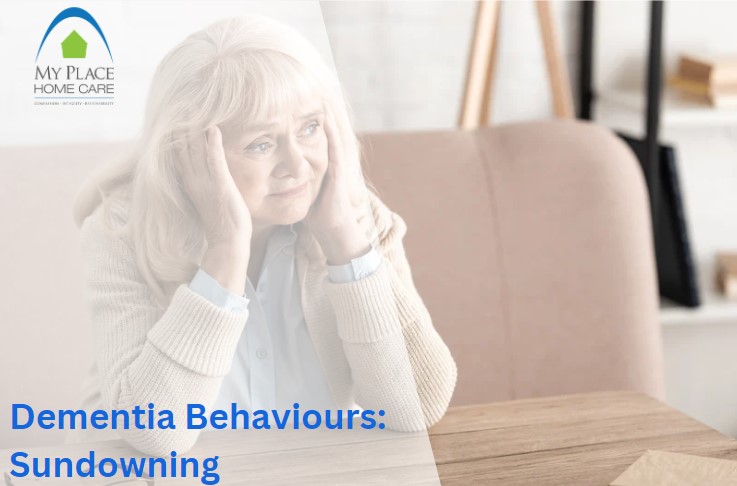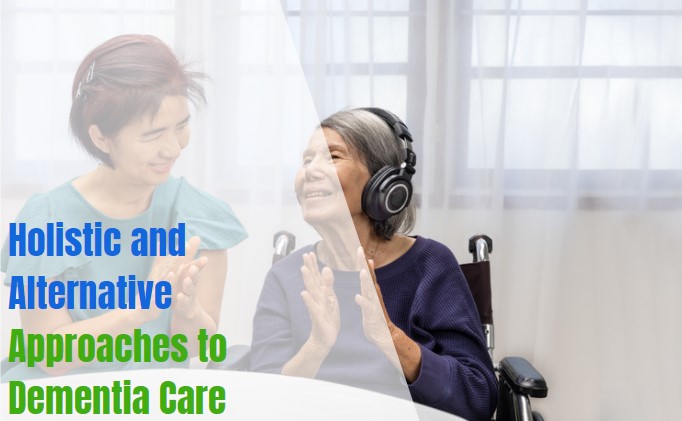Caring for Aging Parents After Surgery: Essential Recovery Tips and Support Options
Helping aging parents recover after surgery requires careful planning, patience, and the right support. The transition from hospital to home can be challenging, especially when seniors need assistance with mobility, pain management, and daily activities. Surgery care in Ottawa is essential for a smooth recovery, ensuring comfort and reducing complications. This guide explores the best practices for care after surgery and how professional caregivers can help. Preparing the Home for a...
DEMENTIA BEHAVIOURS: SUNDOWNING
Sundowning, also known as late-day confusion, is a common behavior associated with dementia, particularly in the mid to later stages of the condition. It refers to a set of symptoms that worsen in the late afternoon or evening, causing increased confusion, agitation, restlessness, and even aggression. Understanding and managing sundowning can help ease the distress it causes for both individuals with dementia and their caregivers. Characteristics of Sundowning Sundowning can affect each...
ADVANCES IN DEMENTIA RESEARCH: A GLIMPSE INTO THE FUTURE
Dementia, a condition that affects millions worldwide, has long been a challenging area of research and treatment. However, recent developments offer new hope and promise. Let's look at some of the most exciting advancements in dementia research that could transform how we understand, diagnose, and treat this complex condition. Revolutionizing Diagnostics with Biomarkers One of the most significant strides in dementia research is the advancement in diagnostic tools. Traditional methods of diagnosing...
UNDERSTANDING PALLIATIVE CARE
Life is full of unexpected twists and turns, but few challenges are as overwhelming as facing a serious illness. In such moments, it’s natural to focus on treatment and cure, but there is another essential aspect of care that deserves attention—palliative care. This specialized approach is often misunderstood or overlooked, yet it plays a vital role in helping patients and families navigate complex medical journeys with comfort, dignity, and support. What...
TIPS FOR MANAGING TYPE 2 DIABETES
Managing type 2 diabetes involves a combination of lifestyle changes, medication, and regular monitoring to maintain blood sugar levels within a target range. Effective management can help prevent complications and improve overall health. Here are some key tips for managing type 2 diabetes: 1. Healthy Eating Maintaining a balanced diet, eating regular meals and being mindful of your portions are healthy eating habits that can assist in managing your diabetes. Persons with...
AN IN DEPTH LOOK AT LEWY BODY DEMENTIA
Lewy Body Dementia (LBD) is a complex and progressive neurological disorder that is one of the most common types of dementia. It affects an estimated 1.4 million individuals in North America, though it is often underdiagnosed or misdiagnosed due to its overlapping symptoms with other neurodegenerative diseases such as Alzheimer’s and Parkinson’s disease. This blog will provide a comprehensive overview of Lewy Body Dementia, including its causes, symptoms, diagnosis, treatment...
HOLISTIC AND ALTERNATIVE APPROACHES TO DEMENTIA CARE
Dementia care traditionally focuses on medical treatments and therapies, but holistic and alternative approaches are gaining recognition for their potential to improve quality of life for individuals with dementia. These approaches emphasize overall well-being, incorporating physical, emotional, and spiritual health. In this blog, we will explore various holistic and alternative methods that can complement conventional dementia care. Music Therapy Overview: Music therapy involves using music to address physical, emotional, cognitive,...
UNDERSTANDING UTIs IN SENIORS: SYMPTOMS, RISKS, AND PREVENTION
Urinary tract infections (UTIs) are common in seniors and can significantly impact their health and well-being. Unlike younger individuals, older adults may not exhibit the typical symptoms of UTIs, making diagnosis and treatment more challenging. In this blog, we'll explore the causes, symptoms, risks, and preventive measures associated with UTIs in seniors. What is a UTI? A UTI is an infection in any part of the urinary system, including the kidneys, bladder,...









